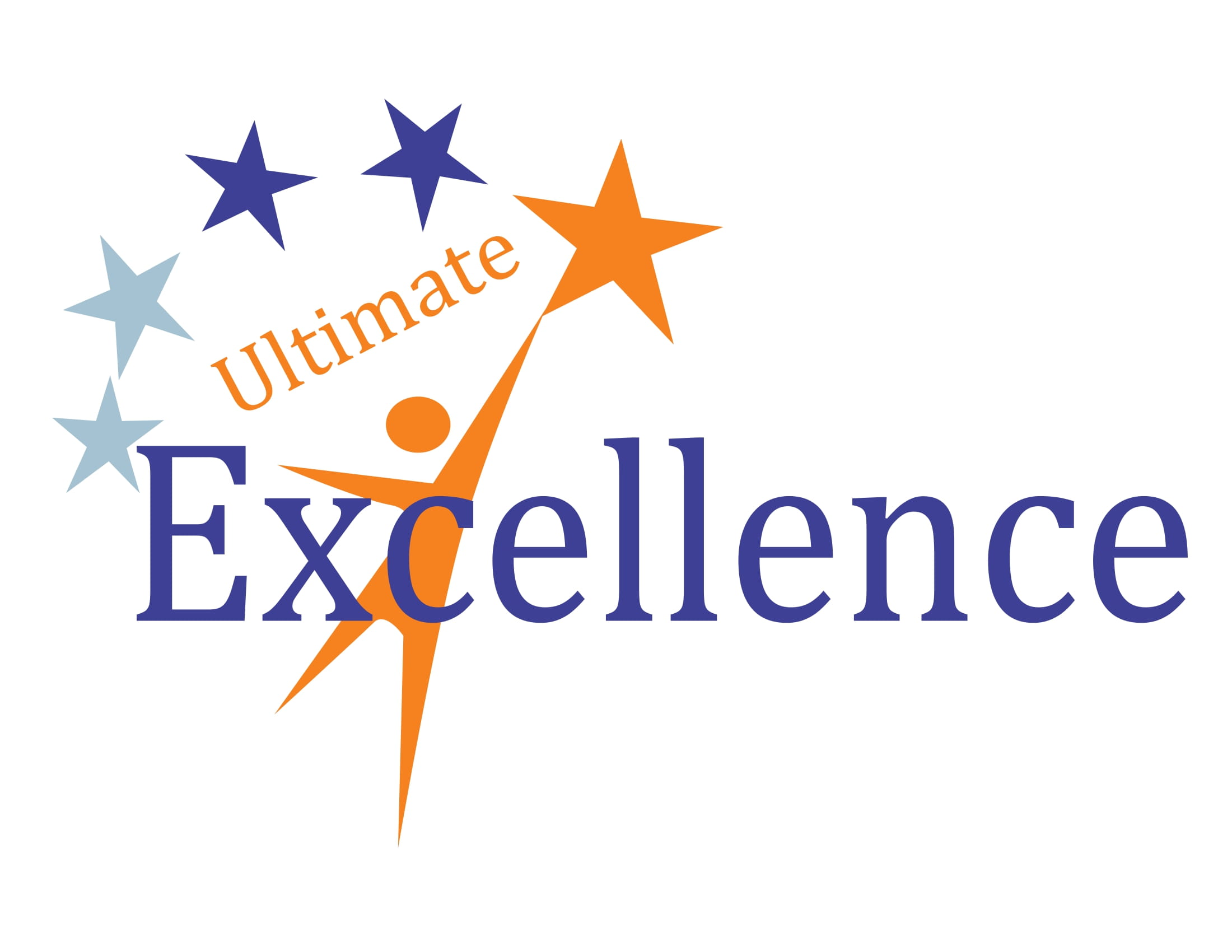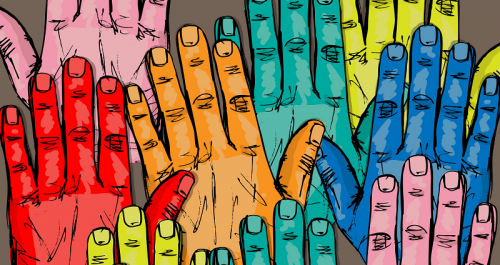How the World Sees You
Greatness Can Go Unnoticed
How the world sees you lesson from Joshua Bell, one of the world’s greatest violinists, earns $1,000 per minute in command performances at high-priced concerts. In an experiment, Bell played his violin during rush hour in a Washington, DC, subway station. A thousand distracted subway riders walked past Bell, but they disregarded him and were oblivious to the beautiful music he was creating for their benefit.
“As a marketplace becomes ever more crowded, strengths matter less than differences. Strengths become the standard…If you want to influence decision makers, invest in understanding your personality ‘Advantages’ and how best to apply them.”
If this virtuoso couldn’t get people to pay attention to him in the subway, how can you stand out from the crowd in your own busy environment? You could be one of the best in the world at what you do, but that won’t make any difference if people can’t separate you from the background noise. If they don’t see you – if you don’t fascinate them – then you aren’t really there.
“Advantages are the basic building blocks of every personality. They provide a simple way to categorize different communication styles for people and brands
You Must Fascinate and forget How the world sees you
You were born with an instinctive ability to captivate; babies always enthrall their parents. But, soon you learned to protect yourself by building a shell and trying to blend in with everyone else. Society encourages children, from their earliest days, to avoid standing out. They learn to conform, to fit in and to wait patiently in line. For most youngsters, attaining invisibility becomes a primary goal, and over time, people acquire “layers of boring.”

“When you operate in alignment with how the world sees you, things get a lot easier…You can stop shouting to be heard.”
Today, no one wins by being invisible. You can’t get ahead unless you stand out from the crowd and earn positive attention. Besides getting noticed, you must fascinate others in order to draw them to you. Most people are afraid to be mesmerizing, a fear that traces back to “the beginning of recorded time.” Civilizations have long regarded the ability to fascinate others as an “evil power,” something akin to witchcraft or hypnotism.
“Much about you is a commodity. These are your least valuable traits…In those areas, increased effort will not yield substantially increased results.”
Fascination is indeed powerful, though not evil. It represents “a neurological state of intense focus, one that creates an irresistible feeling of engagement. It’s almost like falling in love.” Fascination gets you noticed. Only when you can fascinate people will you get the opportunity to communicate – and be hired or included. If you can’t “add value to your audience,” the game will go on without you. Getting noticed in a positive light takes effort, due to three factors that threaten your ability to be distinctive:
- “Distraction” – People face an endless barrage of communication. The BBC reports that web browsing dramatically limits the human attention span, which is now about “nine seconds – the same as a goldfish.” Making a good impression in only nine seconds is tough, so you have to “front-load your value.”
- “Competition” – Everyone who wants to succeed tries “hard to be ‘better’” than their competitors. The problem is, being “’better’ is not better.” You may temporarily get ahead of those around you, but a new face will emerge who does better than you and you’ll be right back where you began. This is true for products, services and companies, too. Instead of trying to be better, aim to be different and stand out.
- “Commoditization” – In today’s intensely competitive environment, you face the danger of being perceived as interchangeable with your competitors. When people become commodities, clients can and will quickly replace them, just as customers quickly replace products or services they see as commodities. Like distinctive professionals, goods and services that offer clear differentiation need never fear commoditization.
“Just because you perceive yourself a certain way doesn’t mean that your team or customers necessarily see you the same way.”
The Seven “Fascination Advantages”
To overcome these “three threats,” endeavor to provide “distinct value” to your clients, customers and company. This value is yours alone and includes your individualized communication style. People communicate seven different ways, using the seven fascination advantages. To determine your advantages, take the Fascination Advantage assessment. While most personality assessments measure how you see the world, this measures “how the world sees you.” Unlike a traditional personality system, which is based on psychology, this is built around marketing.
“Employees are most fulfilled and successful when your company doesn’t try to change who they are, but…supports them in becoming…who they naturally are, at their best.”
No single advantage is best. Identify the two advantages on the following list that capture your strongest character traits. These two assets “make you intensely valuable.” The first is your “primary advantage”; the other is your “secondary advantage.” They define what makes you unique. Leverage them in all you do. The seven advantages are:
- “Power advantage” – Authoritative “power personalities” enjoy debates and expertly argue their cases. They don’t fear risks. The typical power personality is “the high-school football coach who pushes each player to do more.” Power people move up quickly, often becoming CEOs. They motivate others.
- “Passion advantage” – As social butterflies, “passion personalities” can spark an acquaintance with anyone. They are the life of any party. The typical passion-personality person is “the Girl Scout who shows up at your door selling cookies, with a big smile and an irresistible sales pitch.” Because they are highly intuitive, these people have strong interpersonal skills and love to use them. They are easy to read because they wear their emotions openly. As life’s natural cheerleaders, they bond quickly with others. They know that people who just “sort of care” will never get anywhere.
- “Mystique advantage” – “Mystique personalities” are analytical thinkers, sensitive to nuance and totally pragmatic. They deal with facts, not emotions. These introverts are great listeners. The mystique personality is “the poker player who doesn’t show his emotions as the pot grows larger.” People turn to these personalities for sound, rational advice.
- “Prestige advantage” – “Prestige personalities” are overachievers who focus on excellence, high standards and superior results. The typical prestige personality is “the editor who takes out a comma and then puts it back.” Rightly proud of their accomplishments, these people demand the best from those they lead.
- “Trust advantage” – Everybody has faith in steady, dependable “trust personalities.” Totally focused and predictable, they like familiar, tried-and-true routines and don’t like new approaches. These traditionalists are the most trustworthy people in the office. The typical trust personality “is a customer who comes back to buy the same pair of jeans, year in and year out.” These folks deliver the goods and keep their promises.
- “Innovation advantage” – Creative, quick-thinking, “innovation personalities” come up with the most imaginative, totally unexpected solutions. Irreverent and independent, these visionaries are idea people – bored by old concepts and habits. They dislike routine and accepted approaches. The typical innovation personality is “the chef who dreams up a different menu each week with fanciful ingredients.”
- “Alert advantage” – “Alert personalities” are detail-oriented and prefer a pragmatic, step-by-step approach. They are risk-averse, focused and in control. “They perform exceptionally well as project managers.” The typical example of an alert personality is the “mother who plans ahead for the child’s birthday party with sanitary wipes and disposable cups.”
“Over time, people…acquire layers of boring…People build shells they believe can shield them from a negative outcome.”
In addition to primary and secondary advantages, you also have a “dormant advantage”: one of the seven advantages that works least well for you. People become uncomfortable – and exhausted – when they rely on their dormant advantages – that’s like a right-handed person trying to write with the left hand. A person with a dormant alert advantage is not good with details. A person with a dormant passion advantage is terrible at relationships.
“Your personality is more valuable than any possession, more valuable than your stock portfolio, or home or retirement plan.”
“The 49 Archetypes”
Combining your primary and secondary advantages creates a personal archetype that represents your “distinct value,” the way you express yourself to the world and how it views you. Your archetype is your fascination advantage.
“You will never be your most successful when evaluated according to criteria that do not allow you to stand out.”
Your fascination advantage enables you to stand out with an inner understanding of your distinct value. In these sample archetypes, the first key word represents the primary advantage and the second key word represents the secondary advantage:
- “Ringleader” – Combine “Power” and “Passion” for this “motivated, spirited, compelling” profile. Ringleaders – like Richard Branson – are “motivated and motivating.” They instill confidence in others.
- “Rockstar” – Use “Innovation” and “Passion” to build this “bold, authentic, unorthodox” person who fills up the room. Rockstars – such as Madonna – enjoy the limelight.
- “Anchor” – The blend of “Trust” and “Mystique” produces a “protective, purposeful, analytical” person, the individual to whom others turn in a crisis. These cool customers deal well with challenging circumstances. People pay close attention to what they say. Clint Eastwood is an Anchor-type.
- “Editor-in-Chief” – Someone with both “Alert” and “Prestige” advantages is “productive, skilled, detailed.” These people have high standards and respect deadlines. They have confidence. Film director James Cameron is an Editor-in-Chief.
- “Change Agent” – The person with both the “Power” and the “Innovation” advantages is “inventive, untraditional, self-propelled.” Change Agents – like Steve Jobs – deal exclusively in new ideas and love to topple the status quo.
“In a distracted, competitive and commoditized world, a personality tagline is crucial. People need to immediately grasp what you bring to the table.”
“Double Trouble”
People who rely too heavily on one of their two main advantages can become rigid, inflexible and hard to work with, and that is double trouble. “Imperial” personalities who use only the “Prestige” advantage, love public recognition, promote themselves constantly and seem pretentious, exemplify the double-trouble dilemma.
“There’s no one right way to fascinate. Over the long run, shy or low-key personalities can be as fascinating as the most charismatic ones.”
Other double-trouble personalities include the “Deadbolt,” who relies only on the “Mystique” advantage and whose secrecy leads to untrustworthiness. The “Aggressor” doubles up on the “Power” advantage and becomes domineering. The “Control Freak” musters only the “Alert” advantage and might be a micromanager. The “Old Guard” has two portions of the “Trust” advantage and is completely predictable, while the “Anarchy” archetype stresses “Innovation” as a sole advantage and becomes insubordinate.
“Fascination really is alchemy. It transforms ordinary companies into exceptionally desirable brands. And…it makes otherwise ordinary people extraordinarily valuable to their company and customers.”
Your two advantages are your big guns; use them together. United, they make you formidable; relying on only one makes you annoying and unlikable.
“You don’t need to find the light. You are the light. When you let your personality shine, you can light up the world.”
Of Taglines and “Anthems”
Companies appreciate the power of taglines that sum up their products’ uncommon qualities. Customers respond to the right taglines. Think of a tagline as “a shortcut to how a brand is most likely to add distinct value to its consumers.” Choice taglines include L’Oréal’s assertion “Because I’m worth it”; the idea that M&M’s “melt in your mouth, not in your hands”; and BMW’s claim to sell “The Ultimate Driving Machine.” Similarly, people need taglines. With the right tagline, everyone will know who you are and how you deliver value.
Your tagline is your personal Anthem, a few words that describe what makes you unique. To create your Anthem: 1) Find an adjective that expresses what makes you different; 2) Choose a noun that tells people what you are great at doing; and 3) Combine both words, for example: “entrepreneurial thought-leader,” “rational insights,” “irreverent innovator” and “dynamic networker.”
You may want an extended Anthem, like “I create bold solutions with a pioneering mind-set,” or “With clients, co-workers and friends, I deliver astute insight based on my in-the-know expertise.” Put your Anthem in your LinkedIn profile, add it to your website, make it part of your email signature, tweet it and cite it in your social media profiles.
Your Fascination Advantage
You deliver your greatest value when you are most yourself. Being “100% yourself” is better than being “100% perfect.” You can never contribute by staying quiet. You can “unlearn how to be boring.” People must hear you.
Your personality is your most important differentiator, so don’t focus on changing yourself; that will get you nowhere. To succeed, focus on becoming more yourself. Clients hire you because you are different – that is your fascination advantage.
From Get Abstract Book Summary for ‘How the World Sees You’ by Sally Hogshead is CEO and founder of How to Fascinate.com





